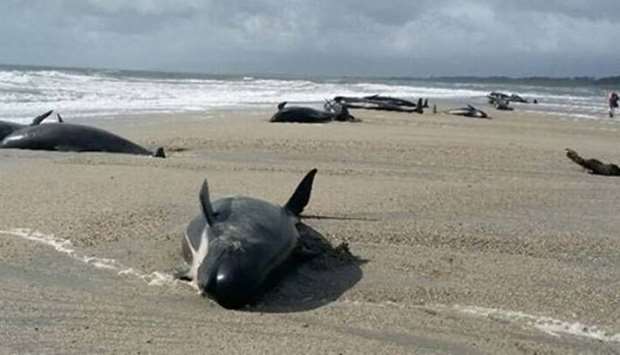All 38 pilot whales of a pod that became stranded on a remote beach on New Zealand's West Coast are dead after the surviving 12 had to be euthanised on Thursday.
The "difficult decision" was made in consultation with the local Maori tribe, whale rescue organisation Project Jonah and other whale stranding experts, the Department on Conservation (DOC) said in a statement.
The Department on Conservation was alerted on Wednesday afternoon that the marine mammals had beached at the mouth of the Okuru River, south of Haast on the country's South Island. When DOC staff returned in the morning, 38 whales were found, most of which were dead.
DOC's Wayne Costello said the dangerous sea and lagoon conditions meant an attempt to refloat the whales could not safely be made.
"Those with the whales did all they could to keep them comfortable by getting them upright, cooling them and protecting them from sun and wind," Costello said.
While pilot whales are prolific stranders, this behaviour is not well understood.
In February 2017, more than 300 pilot whales died at the northern tip of New Zealand's South Island, in one of the biggest mass whale strandings ever recorded in the country.
Whale rescue organisation Project Jonah's Daren Grover said in a statement that there were various factors why this pod came close to the shore.
"We won't know specifically. They're mostly an open ocean species. When they come close to shore they can get caught out by tides, currents and fleeing from predators like orca," he said.
Or it could be that one whale is sick or injured and the others, as a family pod, follow them with their herding instinct, he added.

The pilot whales became stranded south of Haast on South Island.
